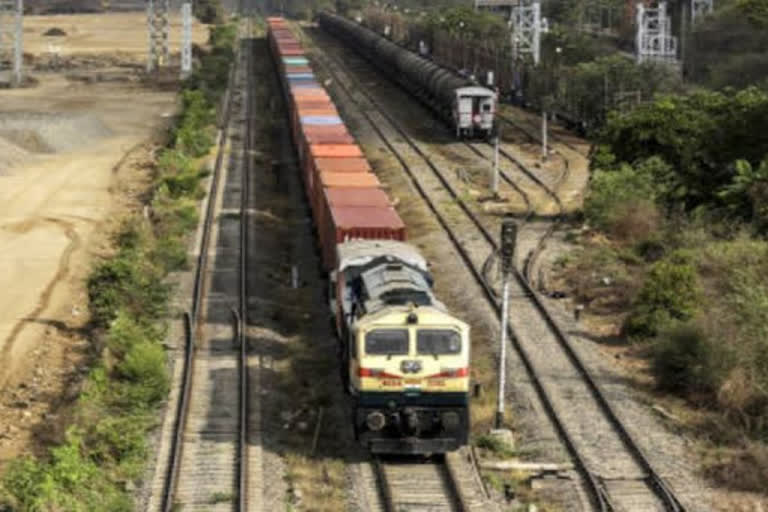New Delhi: Iran’s decision to leave a confused India fearful of US and go it alone to build the crucial railway link from Chabahar Port to Zahedon is not a development that happened overnight. It was unfolding slowly.
An Indian Railway company, IRCON, had signed a Memorandum of Understanding (MOU) to do a feasibility report on the railway line that would give meaning to the trilateral connectivity deal that India, Iran and Afghanistan signed during Prime Minister Narendra Modi’s visit to Tehran in 2016. Chabahar port in the Southeast part of Iran on the sea of Oman was to be the hub of this linkage.
So when Tehran says that India did not sign the contract with India to build the railway line, they are not being incorrect. India had expressed its intentions, but really did not go down to building it- the actual laying of railway line etc.
Indian Railway construction company, IRCON, had only done the feasibility and rest of the work involved showing up the money some 150 million and getting ahead with the work. Why didn’t India allot the necessary funds for the railway line, which had been listed as critical for the successful functioning of the Chabahar port?
There are theories and reasons including the fact that Iran alleges that India, a great nation, has not been exercising strategic autonomy and moving forward on what serves its national interest. Instead it is allowing itself to be cowed down by the US. India’s ostensible reasons for going slow in funding the project are mired in fears that it might invoke US sanctions, though Chabahar project, despite its warts, has been allowed by the
Washington as they believe it helps Afghanistan’s trade and reduces dependence on Pakistan’s port of Karachi, which is far and a bit complicated. Though recently, Pakistan has allowed the government in Kabul to bring their goods right up to Wagah border. From this standpoint, India’s fears are exaggerated.
The real reasons are elsewhere. India has been distancing itself from Iran, due to its trenchant opposition to the abrogation of Article 370 and the manner in which the status of Kashmir has been changed by the Indian government. Iranian leadership has been critical of Indian government’s suppression of civil liberties, which has been a cause of much unease in the Islamic world. Later, the Iran’s Supreme leader, Ayatollah Khamenei criticized India’s Citizen’s amendment Act (CAA) and how it was anti Muslim in implications. Delhi riots, described as a pogrom by many, was severely criticized by the Iranians.
Kashmir is important for Iran’s as they call it “ saghir- e-Iran” or mini Iran. They believe that an unstable Kashmir caused by hostilities between India and Pakistan. They have offered diplomatic interventions and also tried to give India strategic space in Chabahar, which is located in Sistan Baluchistan province, to serve as a counterpoint to Pakistani ambitions.
This approach to rein in Pakistan and work with closely with India in Kashmir was pursued aggressively the legendary Iranian General, Qassim Suleimani. Head of the Quds force, he wanted India to move faster in Chabahar to attain its strategic objectives.
Unfortunately for this cause, he was assassinated by US. Iran, to its credit, did not pass on Chabahar to the Chinese, which was the easy thing to do, as it is only 70 kilometers from the Pakistani port of Gwadar, which is being developed by Chinese to be the entrepot to China Pakistan Economic Corridor (CPEC).
Chinese would have been happy to take control over Chabahar, too, but Tehran cognizant of India’s close ties to US and how its strategic location could help India to side step Pakistan and reach Central Asia. Iran, proud of its ancient civilization and independent foreign policy, was very careful about ensuring that it did not give up its freedom even when it was being smothered by US through its sanctions.
It had hoped that US proximity with India would keep this port open for business even when its port in strait of Hormuz, Bandar Abbas, was diminished due to freeze in oil exports etc by US bilateral sanctions. India did not push the envelop to fully reaiize the full potential of the port due to its own self doubts about Afghanistan.
It has wondered what will happen to its Afghanistan investment if the Taliban come to power. Will the new agreement brokered by US interlocutor,Zalmay Khalizad, protect Indian investment. Though Taliban has made friendly noises, it is anyone’s guess, what will happen when they occupy Kabul.
In the past, they have conducted themselves like lawless hordes who have scant regard for agreements. This is one major reason for Indian reluctance.
Iran, too, has been very closely how the face off between India and China plays out in Northern Ladakh. The manner in which China has occupied land on the Indian side has created an impression in their minds that it cannot look after its interest without US support.
China, which is shedding its coyness, is rebalancing the power in South and Iran’s attitude towards Beijing is the reflection of this change. To reiterate, Iran’s troubles with US sanctions and how it has been starved of funds and opportunities are driving it to accept a mega $ 400 billion deal that it had kept in abeyance since 2016.
Iran is asserting that it would not give land to the Chinese, but they reckon that they would have readjust their foreign policy in a manner that they do not become a scene of confrontation between two Asian giants.
Chabahar Railway project, in reality, was not really India’s as it is made out to be. What is really means is that the ground reality has shifted in the region due to Chinese assertion and India’s diminution as an economic power and countries are adjusting to it in the post pandemic world.
Also Read: Indian Railways to cover all wagons under RFID for tracking by Dec 2022



